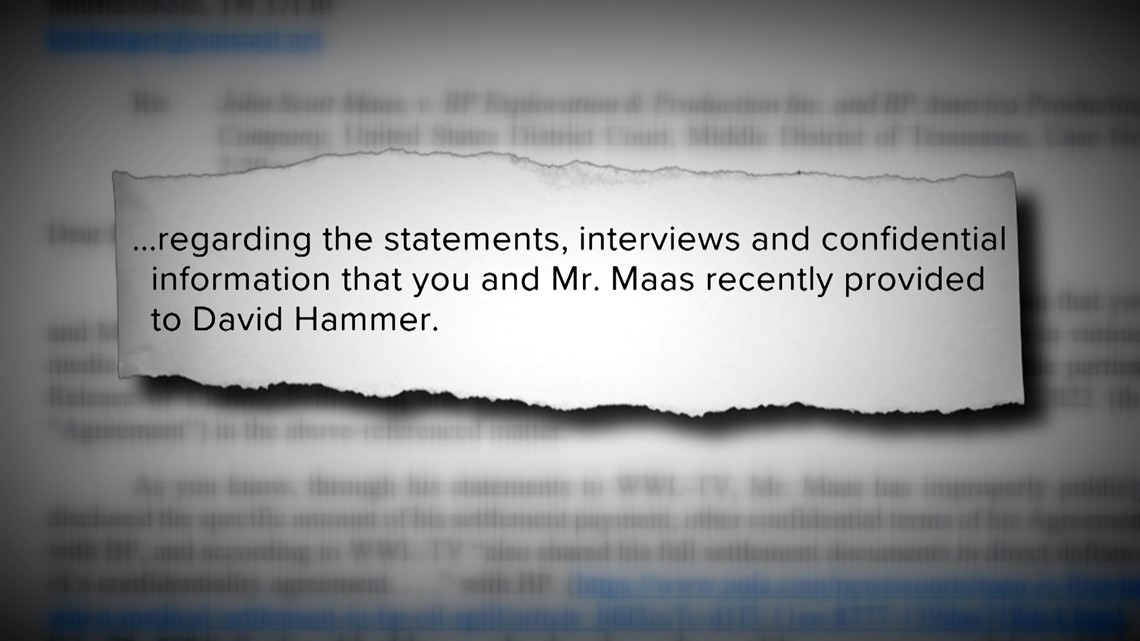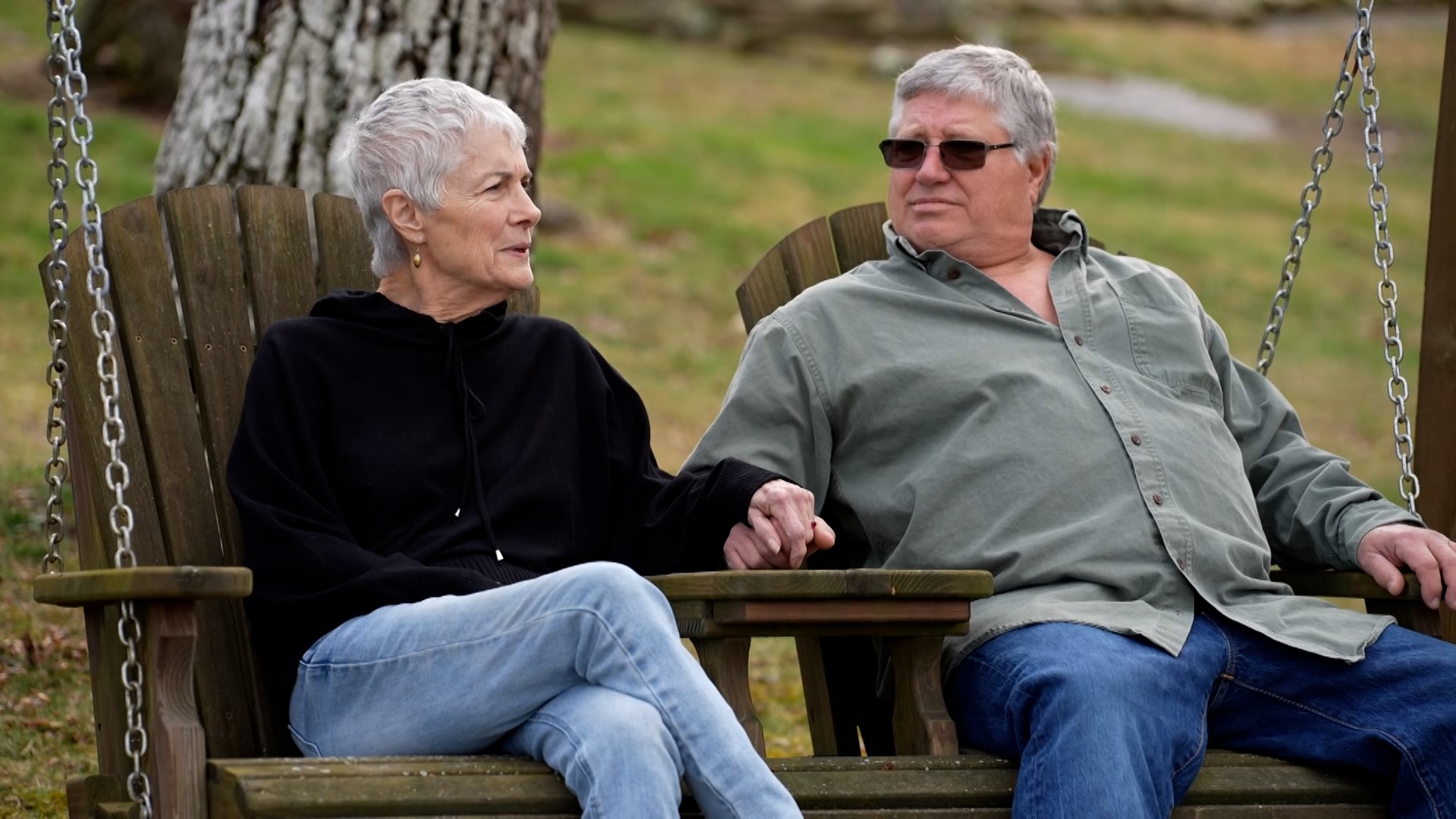SPARTA, Tenn — Lawyers for BP sent a letter Monday to the only person who successfully sued the company over the health impacts of its catastrophic 2010 Gulf oil spill, urging former boat captain John Maas and his attorney to stop violating a confidentiality agreement they signed in 2022.
Maas was interviewed by WWL Louisiana in his home on top of a mountain in Sparta, Tenn., and brazenly disclosed that he won a $110,000 settlement from the oil giant after a federal judge in Tennessee denied BP’s efforts to stop Maas’ lawsuit from going to trial.
“And I'll be happy to show you the confidential settlement agreement,” Maas said in the interview, which aired last Thursday, Feb. 22. “BP's lied to me from day one on this issue. BP hasn't told me the truth about a damn thing. They think I want to abide by their confidential settlement agreement? You got to be f------ kidding!”
It didn’t take long for BP to take note of Maas’ defiance.
“I am writing regarding the statements, interviews and confidential information that you and Mr. Maas recently provided to David Hammer,” Mississippi lawyer Chan McLeod wrote to Ken Burger, Maas’ attorney in Tennessee.
“As you know, through his statements to WWL-TV, Mr. Maas has improperly publicly disclosed the specific amount of his settlement payment, other confidential terms of his agreement with BP and, according to WWL-TV, ‘also shared his full settlement documents in direct defiance of a confidentiality agreement,’” McLeod continued.


The letter went on to ask Maas and Burger to stop making any public statements about the settlement.
It ended with a warning that BP could use “rights and remedies” to enforce the confidentiality provisions of the settlement.
None of that seemed to scare Maas, who responded to the letter Tuesday by telling BP to “bring it on.”
“I'll use the last 40% lung function I have left to tell the facts to everybody that wants to hear them,” he said. “If BP wants their money back, come and get it. If BP wants to put me in jail, come get me. I'm not going to stop.”
Burger said Tuesday that he is not prohibited by the agreement from talking about the existence of the agreement and Maas’ case against BP. In fact, he made several amendments to the agreement before signing it to remove any restrictions on speaking about the existence of the agreement as long as he didn’t disclose the value — which he did not. He was clear about his restrictions in his previous interview with WWL at his law office in Murfreesboro, Tenn.
“I will avoid anything that remotely would breach that confidentiality requirement,” he said at the outset. “Everything I'm going to say to you, everything I'm going to talk to you about, is a matter of public record.”
But BP’s letter suggests sticking to what’s in the public court record wouldn’t spare Burger from violating the confidentiality agreement because Section 2.6 says the only response he or Maas could give to media inquiries is the following statement: “The matter has been disposed of in a manner agreeable to the parties."
Burger said Tuesday he believes that restriction only applies to answering questions about the value of the settlement.
Maas questioned the enforceability of such a confidentiality clause, citing what he called a “moral obligation” to share his story with others who were affected by the worst environmental disaster in U.S. history.
“The public interest far supersedes any right to privacy BP may think they have,” he said. “I believe I owe it to every person involved in that experimental cleanup to tell the facts as I know 'em.”


BP said last week it could not comment at all on the Maas matter.
Maas said he is continuing to pursue recompense for his ongoing health problems. Last week, he served formal administrative complaints against five federal agencies – the Department of Health and Human Services, the National Oceanic and Atmospheric Administration, the Occupational Safety and Health Administration, the Environmental Protection Agency, and the U.S. Coast Guard – for each of their roles in allowing BP to apply the chemical Corexit in record volumes to disperse the oil, letting workers perform cleanup duties without respirators and for what Maas called “fraudulent concealment of known health risks.”
He said he believes his settlement with BP established his standing to pursue claims against those government agencies under the Federal Tort Claims Act, which lets anyone “injured … by the wrongful or negligent act of a federal employee acting in the scope of his or her official duties” file for reimbursement.
► Get breaking news from your neighborhood delivered directly to you by downloading the new FREE WWL-TV News app now in the IOS App Store or Google Play.

